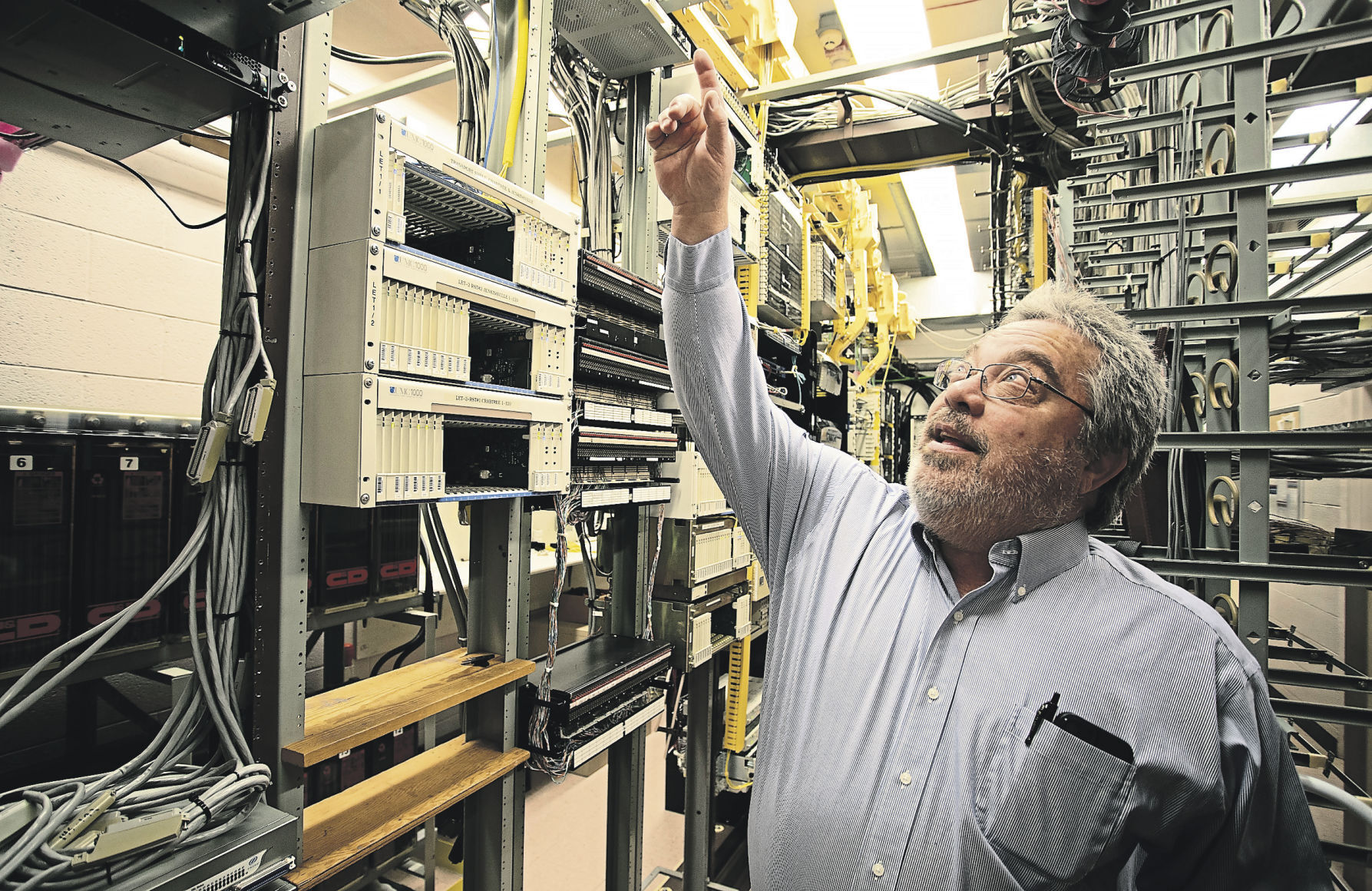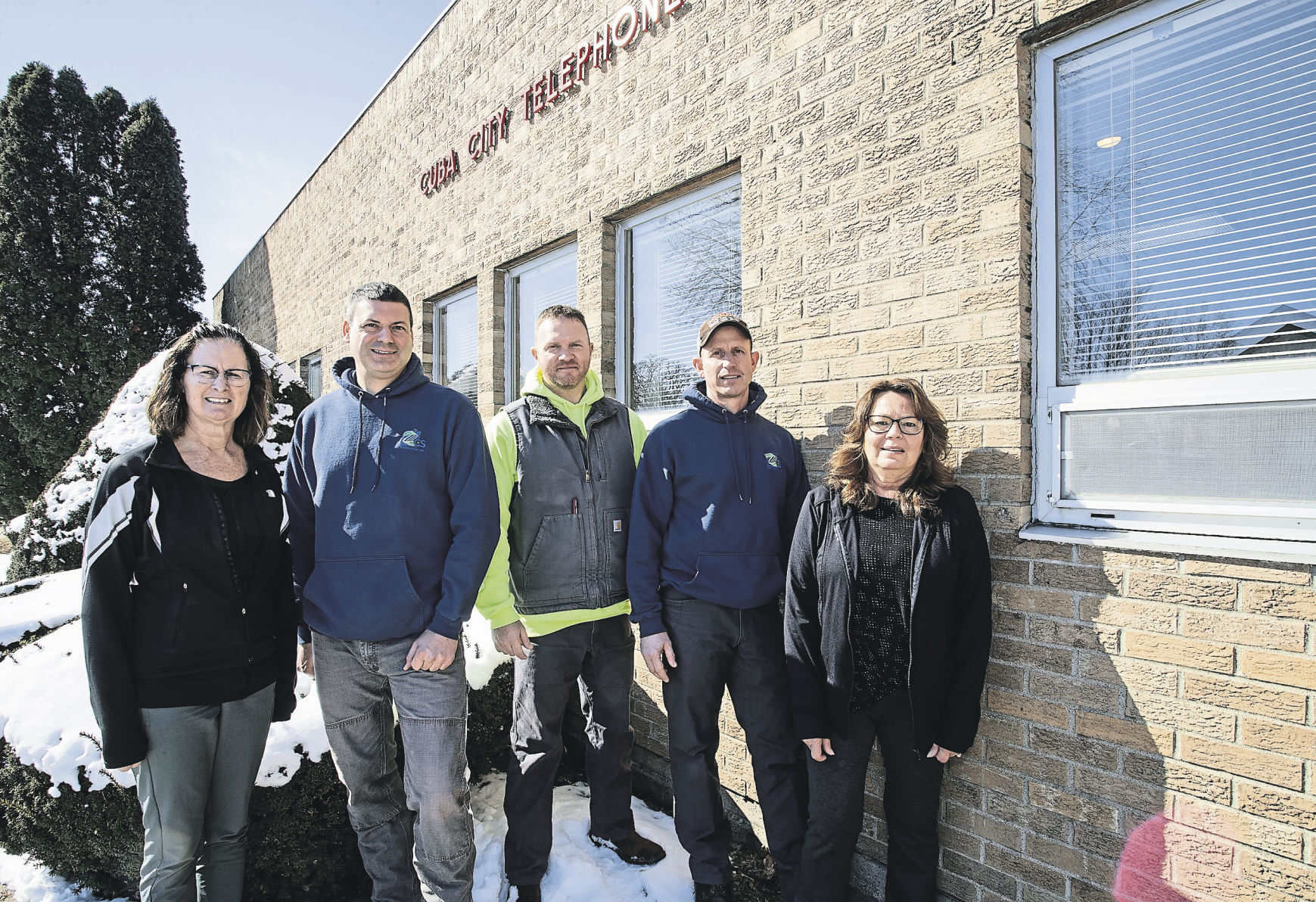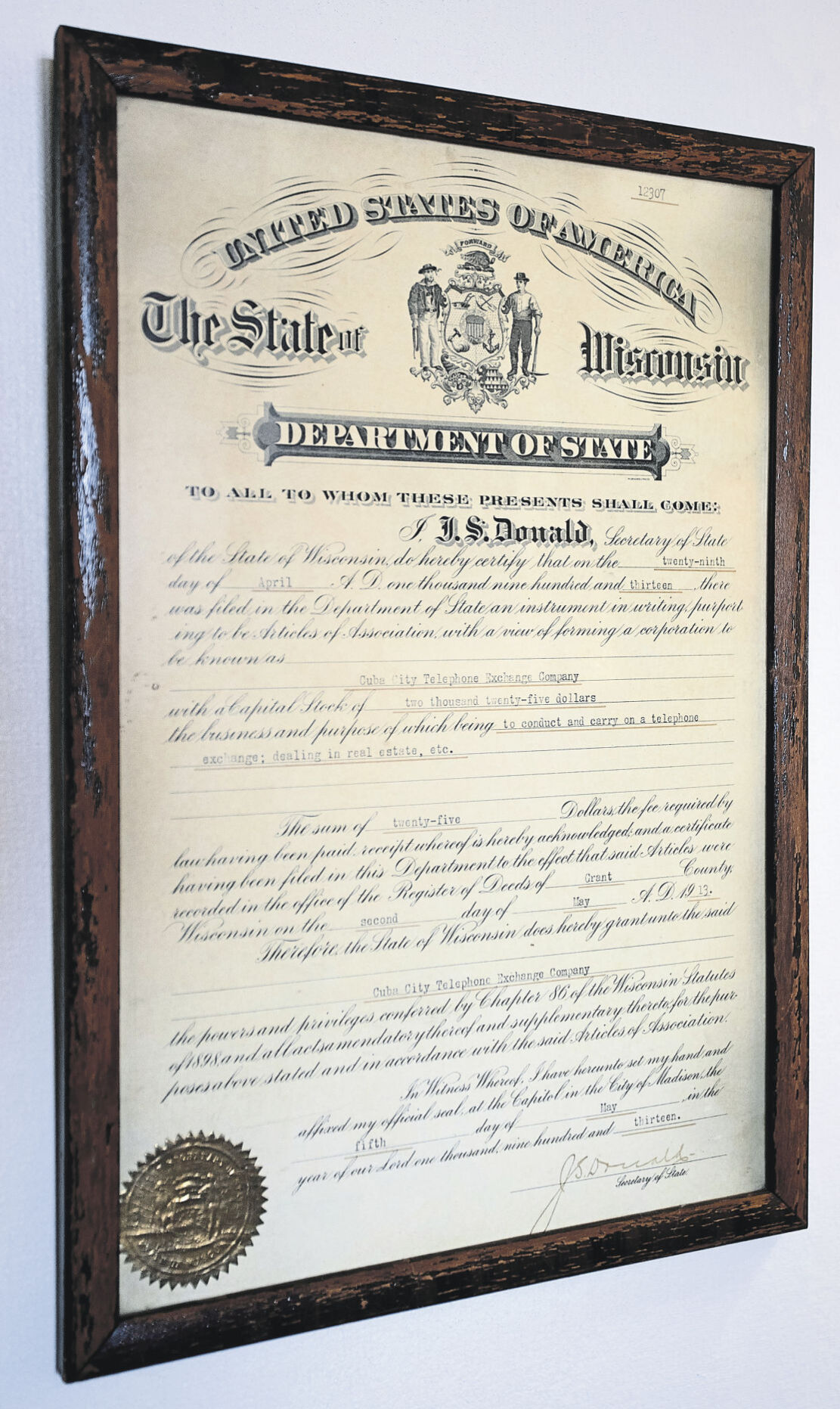Incorporated: May 5, 1913
Current location: 121 N. Washington St., Cuba City, Wis.
Hours: 8 a.m. to 5 p.m. Monday through Friday. Closed weekends.
Employees: Five in Cuba City, 31 total in Wisconsin and Iowa.
On the web: cubacitytel.com
Phone: 608-744-2154
CUBA CITY, Wis. — Telecommunications came to Cuba City in the early 1900s, when crews strung a one-line connection from Hazel Green to the city.
Florine Drug Store boasted the first telephone in town, and more phones followed. The Cuba City Telephone Co. was incorporated on May 5, 1913, and the journey of one of the area’s oldest businesses has continued into the fast-changing present.
“A lot has changed,” said Donn Wilmott, CEO and general manager of CS Technologies, the name of the company that operates the phone companies in Cuba City and Belmont. “Those early days, there was a phone line between here and Hazel Green. That was voice communication. Now, it’s all about getting broadband out to all homes, all people.”
The company was located in the back of the drugstore in 1913, moving to Cuba City’s post office building in 1924.
When the Charles Bartlett family purchased the company around 1926, there were 21 rural phone companies in the area, in townships including Elk Grove, New Diggings, Smelser, Benton, Hazel Green and Jamestown, according to company records. Local farmers owned and maintained the lines.
The Cuba City Telephone Co. assumed ownership of these lines by 1930. The company continued to develop with the pace of technology, and by 1955, an automatic, electric dial system replaced an antiquated battery switchboard system.
Pole lines were replaced with buried cable in the 1970s, after the company had been sold to Universal Telephone Inc. Central Western Communications Inc. purchased the company in 1977, and by 1986, Central Western had purchased Belmont Telephone Co., and both southwest Wisconsin companies were purchased by the present owner, LICT Corp., in 1991.
“We keep ‘telephone’ in the name, because for a lot of people, that’s how they know us,” Wilmott said. “We brand ourselves as ‘CS Technologies.’”
Wilmott has overseen the two Wisconsin companies as well as the firm’s telecommunications operations in northern Scott County in Iowa for the past 10 years. The Wisconsin and Iowa operations began working together in 2011.
“When mapping software became so important, we could put all of that on a common server,” Wilmott said. “We could merge billing platforms and put that on a common server and we share it.”
Wilmott said he is a firm believer that businesses either grow or they die.
“We’ve got to be constantly re-creating ourselves,” he said. “The telephone industry is never going back to what it was. Telephone lines have become an application, they are no longer a product. They’re going away. The only thing that is going to survive all of this change is going to be the data pipe going into the home. With it, you’re going to put applications like voice (communication), video, telemedicine, working from home — those are all going to be applications.”
Wilmott said COVID-19 highlighted the importance of the company’s current, re-created role, as a broadband internet provider.
“There are people more focused than ever on telemedicine, banking online, consumer transactions online, streaming video online and now education online and working at home,” he said. “There was some of it going on (before the pandemic), but, all of a sudden, it’s a mainstream thing. That whole capability to connect at home in a meaningful way is what broadband is.”
The latest iteration of the 109-year-old company is working to boost broadband in the local area. The utility recently completed a fiber optic project to boost broadband internet speeds, deploying to 1,524 structures in and around Cuba City. The company completed an initial phase, connecting to 884 structures within the city limits of Cuba City, in 2018.
“They have set Cuba City apart with their installation of fiber,” said Bob Jones, Cuba City’s economic development director. “It has meant so much to our schools and businesses. They have been outstanding. They have been great partners for us.”
The first phase was approved by the company’s board of directors in 2016, with construction starting in 2017.
“From when you get approval, there’s probably a full year worth of work behind the scenes — engineering it, ordering materials, putting a bid out to get a contractor to do it and awarding that bid,” Wilmott said. “None of that was subsidized. It was just a business saying it’s time for us to do this as part of our future. To do that on a per-home basis in a town of 884 was an investment we made on our own. To do that same type of investment in a rural area, where sometimes you have three to five homes per mile of fiber — that’s a whole different story.”
Wilmott said the cost of completing the 884 homes in Cuba City was less than $3,000 per home.
“Costs have gone up,” Wilmott said. “Today, in a similar situation, if I can do that for at or below $4,500 (per home), I’m doing OK. That $3,000 has become $4,500. When you go out into a real rural area, it’s not uncommon to see that (cost per home) anywhere from $12,000 to $24,000 (per home), depending upon the number of homes and the number of homes per mile. All of our facilities are underground, we’re not up on poles, so there is some inherent cost there.”
State and federal broadband initiatives help fund rural outreach of broadband by providing support to small, rural providers.
A second phase reaching rural areas surrounding Cuba City included another 640 homes.
The company has announced an additional expansion to Belmont, reaching another 872 homes. Construction on that project is expected begin in the spring, with complete conversion from previously used copper lines by the end of 2024.
“They have gone above and beyond every time,” Jones said. “Every conference I go to I hear about communities trying to get fiber broadband into their community and here (in Cuba City) is a company that did it without us having to do anything but say thank you.”
The company is applying for a state grant that could expand the firm’s broadband network to areas in and around two additional southwest Wisconsin communities.
“We want to do some things down in Benton and Hazel Green,” Wilmott said. “Hopefully, that will add another 1,700-plus homes to our network.”
The state funding would support extending broadband to rural areas considered “underserved” by fiber optic lines.
“The rural (projects) would not be happening right now without government assistance,” Wilmott said.






